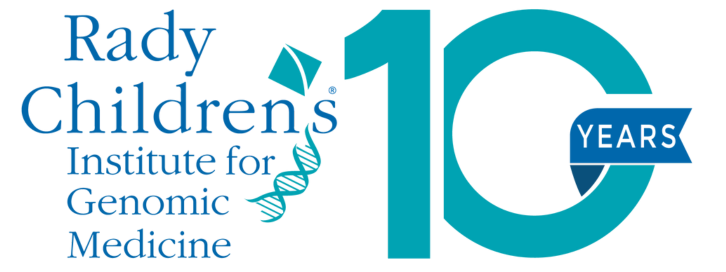JAMA Pediatr. 2021 Feb 15:e205906. doi: 10.1001/jamapediatrics.2020.5906. Online ahead of print.
ABSTRACT
IMPORTANCE: A targeted genomic sequencing platform focused on diseases presenting in the first year of life may minimize financial and ethical challenges associated with rapid whole-genomic sequencing.
OBJECTIVE: To report interim variants and associated interpretations of an ongoing study comparing rapid whole-genomic sequencing with a novel targeted genomic platform composed of 1722 actionable genes targeting disorders presenting in infancy.
DESIGN, SETTING, AND PARTICIPANTS: The Genomic Medicine in Ill Neonates and Infants (GEMINI) study is a prospective, multicenter clinical trial with projected enrollment of 400 patients. The study is being conducted at 6 US hospitals. Hospitalized infants younger than 1 year of age suspected of having a genetic disorder are eligible. Results of the first 113 patients enrolled are reported here. Patient recruitment began in July 2019, and the interim analysis of enrolled patients occurred from March to June 2020.
INTERVENTIONS: Patient (proband) and parents (trios, when available) were tested simultaneously on both genomic platforms. Each laboratory performed its own phenotypically driven interpretation and was blinded to other results.
MAIN OUTCOMES AND MEASURES: Variants were classified according to the American College of Medical Genetics and Genomics standards of pathogenic (P), likely pathogenic (LP), or variants of unknown significance (VUS). Chromosomal and structural variations were reported by rapid whole-genomic sequencing.
RESULTS: Gestational age of 113 patients ranged from 23 to 40 weeks and postmenstrual age from 27 to 83 weeks. Sixty-seven patients (59%) were male. Diagnostic and/or VUS were returned for 51 patients (45%), while 62 (55%) had negative results. Results were concordant between platforms in 83 patients (73%). Thirty-seven patients (33%) were found to have a P/LP variant by 2 or both platforms and 14 (12%) had a VUS possibly related to phenotype. The median day of life at diagnosis was 22 days (range, 3-313 days). Significant alterations in clinical care occurred in 29 infants (78%) with a P/LP variant. Incidental findings were reported in 7 trios. Of 51 positive cases, 34 (67%) differed in the reported result because of technical limitations of the targeted platform, interpretation of the variant, filtering discrepancies, or multiple causes.
CONCLUSIONS AND RELEVANCE: As comprehensive genetic testing becomes more routine, these data highlight the critically important variant detection capabilities of existing genomic sequencing technologies and the significant limitations that must be better understood.
PMID:33587123 | PMC:PMC7885094 | DOI:10.1001/jamapediatrics.2020.5906
